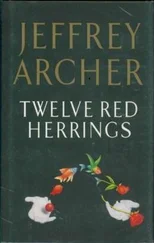Alan Bradley - A Red Herring Without Mustard - A Flavia de Luce Novel
Здесь есть возможность читать онлайн «Alan Bradley - A Red Herring Without Mustard - A Flavia de Luce Novel» весь текст электронной книги совершенно бесплатно (целиком полную версию без сокращений). В некоторых случаях можно слушать аудио, скачать через торрент в формате fb2 и присутствует краткое содержание. Жанр: Старинная литература, на русском языке. Описание произведения, (предисловие) а так же отзывы посетителей доступны на портале библиотеки ЛибКат.
- Название:A Red Herring Without Mustard: A Flavia de Luce Novel
- Автор:
- Жанр:
- Год:неизвестен
- ISBN:нет данных
- Рейтинг книги:4 / 5. Голосов: 1
-
Избранное:Добавить в избранное
- Отзывы:
-
Ваша оценка:
- 80
- 1
- 2
- 3
- 4
- 5
A Red Herring Without Mustard: A Flavia de Luce Novel: краткое содержание, описание и аннотация
Предлагаем к чтению аннотацию, описание, краткое содержание или предисловие (зависит от того, что написал сам автор книги «A Red Herring Without Mustard: A Flavia de Luce Novel»). Если вы не нашли необходимую информацию о книге — напишите в комментариях, мы постараемся отыскать её.
A Red Herring Without Mustard: A Flavia de Luce Novel — читать онлайн бесплатно полную книгу (весь текст) целиком
Ниже представлен текст книги, разбитый по страницам. Система сохранения места последней прочитанной страницы, позволяет с удобством читать онлайн бесплатно книгу «A Red Herring Without Mustard: A Flavia de Luce Novel», без необходимости каждый раз заново искать на чём Вы остановились. Поставьте закладку, и сможете в любой момент перейти на страницу, на которой закончили чтение.
Интервал:
Закладка:
I could still remember Grindlestick, the three-legged waif I had fashioned from a pickle fork (which Father referred to as a trifid), who performed the most amazing acrobatics until I jammed one of her legs in a crack and broke it off.
“Better than the ’ippodrome, it were,” Mrs. M would tell me as she wiped away a tear of laughter. “Poor little tyke.”
I still don’t know if she meant Grindlestick or me.
Now, as I watched him at his work, I wondered if Dogger had known about the Mumpeters. It was likely that he did, since Mrs. Mullet, when it came to gossip, was equaled only by the News of the World .
I knew that there would never be a better time to dig for information: Mrs. M was away from her usual post in the kitchen and Dogger seemed to be at a peak of alertness. I took a deep breath and plunged directly in: “I found Brookie Harewood in the drawing room last night,” I said. “Actually, it was past two in the morning.”
Dogger finished polishing a grapefruit knife, then put it down and aligned it perfectly with its mates on a strip of green baize.
“What was he doing?” he asked.
“Nothing. Just standing by the fireplace. No, wait! He was crouched down, touching one of the firedogs.”
These fire irons had belonged to Harriet, and although they had different faces, each was that of a wily fox. Harriet had used them as the main characters in the bedtime stories she’d invented for Daffy and Feely: a fact of which they never tired of reminding me.
To be perfectly truthful, I bitterly resented the fact that my mother had spun so many tales of the make-believe world for my sisters but not for me. She had died before I was old enough to receive my due.
“Which of the two irons was he touching?” Dogger asked, already halfway to his feet.
“The Sally Fox,” I said. “The one on the right.”
Sally Fox and Shoppo were the names Harriet had given to the cunning pair, who had gone jauntily adventuring through an imaginary world—a world that had been lost with Harriet’s death. From time to time, Feely and Daffy, trying to resuscitate the warm and happy feeling of bygone days, had made up their own tales about the two crafty foxes, but in recent years they had, for some reason, stopped trying. Perhaps they had grown too old for fairy tales.
I followed as Dogger walked from the kitchen through to the foyer and made for the drawing room in the west wing.
He paused for a moment, listening at the door, then seemed to vanish through its panels like a wisp of smoke, as so many of the older servants are able to do.
He went straight to the Sally Fox, regarding her as solemnly as if he were a priest come to administer the last rites. When he had finished, he moved a few feet to his left and repeated the same performance with Shoppo.
“Most odd,” he said.
“Odd?”
“ Most odd. This one,” he said, pointing to the Sally Fox, “has been missing for several weeks.”
“Missing?”
“It was not here yesterday. I did not inform the Colonel because I knew he would worry. At first I thought I might have misplaced it myself during one of my—my …”
“Reveries,” I suggested.
Dogger nodded. “Thank you,” he said.
Dogger suffered occasional terrors during which his very being was snatched away for a while by unseen forces and hurled into some horrid abyss. At such times his soul seemed to be replaying old atrocities, as he was once more thrown into the company of his dear old comrades-in-arms, their restless spirits dragged back from death by his love for them.
“A month ago it was Shoppo: here one day, gone the next. And then he reappeared. I thought I must be imagining things.”
“Are you sure, Dogger?”
“Yes, Miss Flavia—quite sure.”
I thought for a moment of telling him I had taken the firedogs, but I couldn’t bring myself to mouth the lie. There was something in Dogger that demanded truth.
“Perhaps Daffy borrowed them for one of her drawing sessions.”
Daffy’s occasional pencil sketches usually began well enough but then, quite often, took a spectacularly wrong turn. The Virgin Mary would suddenly sprout buck teeth, for instance, or an impromptu cartoon of Father seated at the dinner table would turn into a man with no eyes. Whenever this happened, Daffy would set the drawing aside and go back to her reading. For weeks afterwards we would keep finding, stuffed into the crevices of the chesterfield and under the cushions of the drawing-room chairs, the pages she had ripped from her sketchbook.
“Perhaps,” Dogger said. “Perhaps not.”
I think it was at that moment, without realizing it, that I began to see the solution to the puzzle of the fire irons.
“Is Mrs. Mullet here today?”
I knew perfectly well that she was but I hadn’t seen her in the kitchen.
“She’s outside having a word with Simpkins, the milk-float man. Something about a wood chip in the butter.”
I’d have to wait until Dogger put away the cutlery before I tackled Mrs. M.
I wanted to be alone with her.
“Them tradesmen don’t give a flick,” Mrs. Mullet said disgustedly, her arms white to the elbows with flour. “Really, they don’t. One day it’s a fly in the clotted cream, and the next it’s a—well, you really don’t want to know, dear. But one thing’s as clear as dishwater. If you lets ’em get away with it, there’s never any tellin’ what they’ll bring round next time. Keep quiet about a toothpick in today’s butter and next thing you know you’ll be findin’ a doorknob in the cottage cheese. I don’t like it, dear, but it’s the way of the world.”
How on earth, I wondered, could I bring the conversation around from tradesmen to Brookie Harewood without seeming to do so?
“Perhaps we should eat more fish,” I suggested. “Some of the fishermen in the village sell it fresh from their creels. Brookie Harewood, for instance.”
Mrs. Mullet looked at me sharply. “Hmph! Brookie Harewood! He’s no more than a poacher. I’m surprised the Colonel hasn’t run him off the Palings. Them are your fish he’s sellin’ at the cottage gates.”
“I suppose he has to earn a living.”
“Livin’?” She bristled, giving the great mound of bread dough an extra pummel. “He don’t need to make a livin’ no more than Grace’s goose. Not with that mother of his over in Malden Fenwick sendin’ him reg’lar checks to stay away. He’s a layabout, plain and simple, that one is, and a rascal to boot.”
“A remittance man?” I asked.
Daffy had once told me about the black-sheep son of our neighbors, the Blatchfords, who was paid to keep well away in Canada. “Two pounds ten shillings per mile per year,” she said. “He lives in the Queen Charlotte Islands to maximize his pension.”
“Mittens man or not, he’s no good, and that’s a fact,” said Mrs. Mullet. “He’s managed to get in with a bad lot.”
“Colin Prout?” I suggested, thinking of the way Brookie had bullied the boy at the fête.
“Colin Prout’s no more than Brookie Harewood’s spare fingers, or so I’ve ’eard. No, I was talkin’ about Reggie Pettibone an’ that lot what ’as the shop in the ’igh street.”
“The antiques place?”
Pettibone’s Antiques & Quality Goods was just a few doors west of the Thirteen Drakes. Although I had passed it often, I had never been inside.
Mrs. Mullet sniffed.
“Antiques, my sitter!” she exclaimed. “Sorry, dear, but that’s ’ow I feels about it. That Reggie Pettibone give us two pounds six and three last year for a table me and Alf bought new at the Army and Navy when first we was married. Three weeks later we spots it in ’is window with silver knobs and fifty-five guineas on it! And a sign what says ‘Georgian Whist Table by Chippendale.’ We knew it was ours because Alf reckernized the burn mark on the leg where ’e raked it with an ’ot poker whilst ’e was tryin’ to fish out a coal what ’ad popped out of the grate and rolled under it when our Agnes was just a mite.”
Читать дальшеИнтервал:
Закладка:
Похожие книги на «A Red Herring Without Mustard: A Flavia de Luce Novel»
Представляем Вашему вниманию похожие книги на «A Red Herring Without Mustard: A Flavia de Luce Novel» списком для выбора. Мы отобрали схожую по названию и смыслу литературу в надежде предоставить читателям больше вариантов отыскать новые, интересные, ещё непрочитанные произведения.
Обсуждение, отзывы о книге «A Red Herring Without Mustard: A Flavia de Luce Novel» и просто собственные мнения читателей. Оставьте ваши комментарии, напишите, что Вы думаете о произведении, его смысле или главных героях. Укажите что конкретно понравилось, а что нет, и почему Вы так считаете.












